Malaga: the perfect city for a beach holiday! But this sunny city also has a very rich culture, and that's reflected in the many museums you can visit in and around the centre. Join us on a tour of Malaga's best museums!
The Pompidou Centre
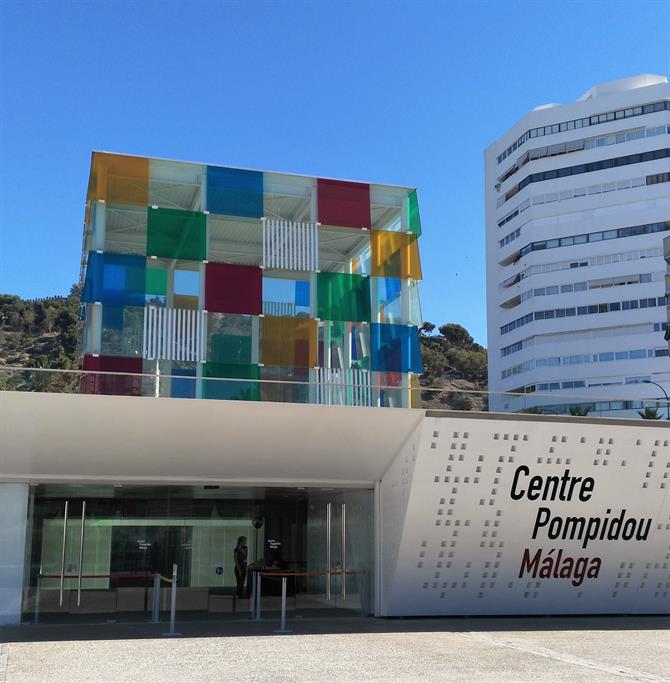
The Pompidou Centre is the first Pompidou to be opened outside of France. This museum is located at Muelle Uno, a part of Malaga's modern port and hosts works which have been selected from the vast Pompidou collection. It's the perfect museum for lovers of art from the 20th and 21st centuries!
For more information: centrepompidou-malaga.eu (website in Spanish)
The CAC

The CAC (Centro de Arte Contemporáneo) is a free museum just outside the SOHO neighbourhood (which is the malagueño mecca for street art by the way). It displays contemporary and modern art by established and newly emerging artists.
For more information: cacmalaga.eu
Museo Picasso
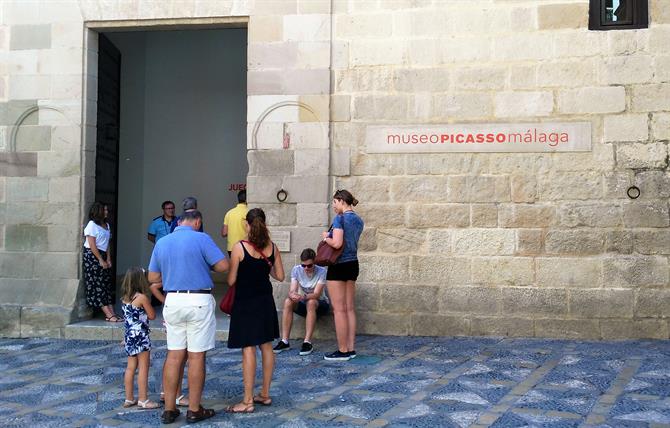
Malaga is Picasso's birthplace, so it's a no-brainer that the city has a Picasso Museum. It displays a wide variety of paintings, sketches, sculptures and engravings, all dating from different periods of Picasso's work. Another Picasso-related attraction is the Casa Natal de Picasso, the house where Picasso was born. It has been converted into a small museum with memorabilia and other objects dating from the time that the Picasso family lived there.
More information on the Picasso Museum: museopicassomalaga.org
More information on the Casa Natal: fundacionpicasso.malaga.eu
Museo Carmen Thyssen

If you like the Thyssen Museum in Madrid you can't miss the Carmen Thyssen Museum in Malaga! This museum exhibits the private art collection of Carmen Thyssen, beauty queen and baroness. It's collection consists mainly of 19th-century Spanish paintings. It also hosts interesting temporary exhibitions and cultural events.
For more information: carmenthyssenmalaga.org
Museo de Vidrio y Cristal
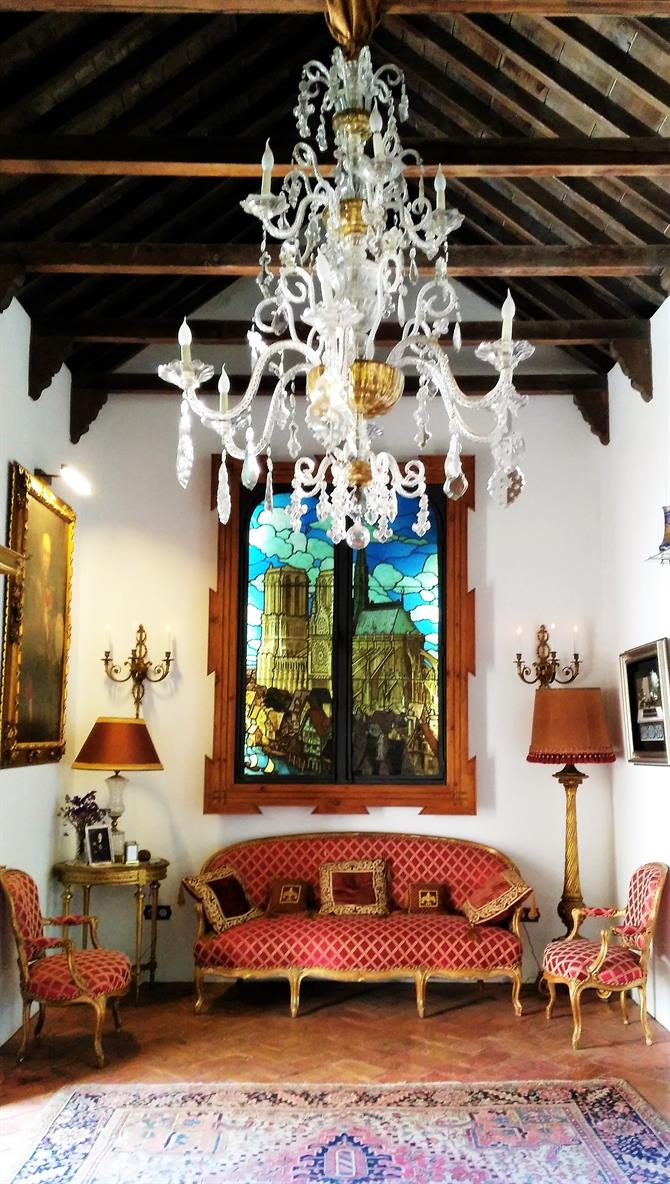
The Glass Museum is probably the most surprising museum of Malaga: it is located in a neighbourhood often overlooked by tourists, and its subject doesn't appear very interesting either. But what is waiting behind the dull facade is a privately owned museum filled with amazing objects, glass and paraphernalia. Anyone who likes history will enjoy a tour of this diverse exhibition!
For more information: museovidrioycristalmalaga.com
Museo Ruso
To get to the Russian Museum you will have to take a bus, but we can assure you that it's worth it! It is the result of a collaboration between the city of Malaga and the State Russian Museum of Saint Petersburg. Its collection consists of Russian fine art, especially selected for Malaga. This museum is the first international branch of the State Museum and offers a unique opportunity to admire the work of Russia's best artists.
For more information: coleccionmuseoruso.es (website in Spanish)
Museo Automovilístico
Next to the Russian Museum there is a museum of a whole different kind: the Automobile Museum. It displays various cars, from the very first ones up to present-day cars. They have been paired with designer clothes from the corresponding era, which gives the museum a nice extra touch. And if you have some money to spare you can even rent one of these beauties!
For more information: museoautomovilmalaga.com
Museo del Patrimonio Municipal
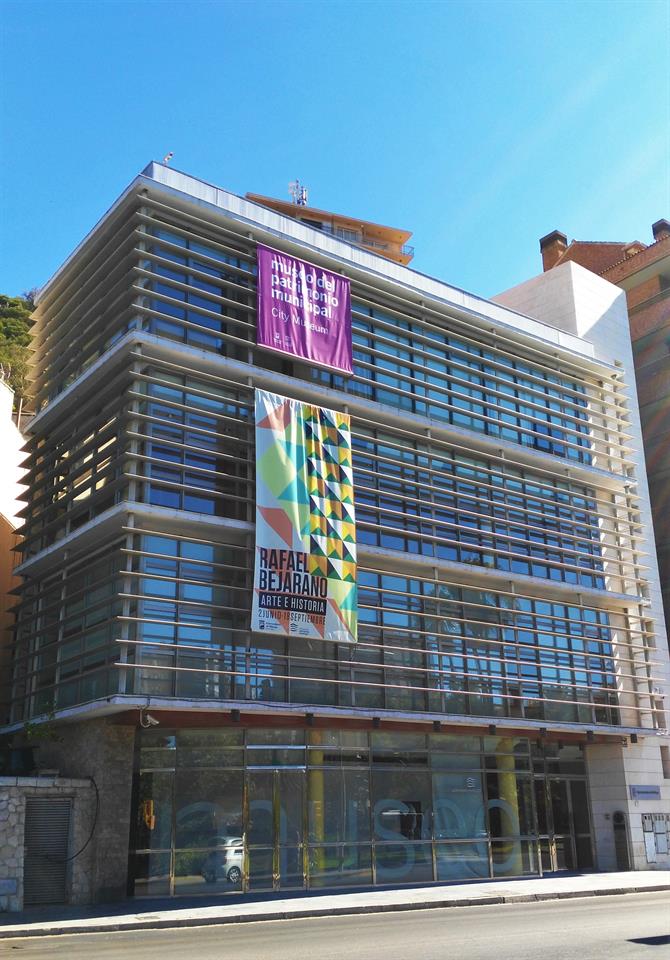
The Municipal Heritage Museum is all about Malaga's art and culture. This museum takes you on a journey through time using artwork of various periods. Usually, it also hosts very good, temporary exhibitions about different aspects of life in Malaga.
For more information: museodelpatrimoniomunicipal.malaga.eu (website in Spanish)
MIMMA

The Interactive Music Museum of Malaga (MIMMA) is one of those museums perfect for children. Its collection of musical instruments is very varied with instruments from all places and ages. And the best part is that it's interactive: most of those instruments can be played! The MIMMA encourages visitors to interact with the exhibitions, playing and experimenting with music. During the weekend there are various special activities such as concerts, jam sessions and workshops.
For more information: musicaenaccion.com
Museo de Arte Flamenco

The Flamenco Museum, only two streets from the MIMMA, is run by Peña Juan Breva, a society named after one of the greatest flamenco singers of Malaga. Its small collection focuses on flamenco in Malaga and consists mostly of posters, paintings and other flamenco-related things. You should visit this museum if you are very passionate about flamenco. In addition to the museum there is also a tapas bar where you can enjoy a free flamenco show every Friday.
For more information: museoflamencojuanbreva.com
Museo del Vino

Since the province of Malaga is home to many great wines and wine bars, a visit to the Wine Museum is almost mandatory. It explains the process of winemaking and gives a history of the many malagueño wines and their international importance. A visit to this museum also includes a wine tasting.
For more information: museovinomalaga.com
Centro de Ciencia Principia

Do you like science? You're going to love this museum! The Principia Science Centre covers different scientific fields and is very interactive. It is mainly aimed at children, but all science aficionados will love visiting the museum and participating in all the activities it offers!
For more information: principia-malaga.com
FC Malaga Museum and Stadium Tour

The museum at the football stadium La Rosaleda celebrates over 100 years of football in Malaga! You can visit the memorabilia museum, but the extensive guided tour of the stadium is the highlight of the visit. Football fans visiting Malaga will enjoy definitely enjoy this activity.
For more information: malagacf.com
Cathedral and Episcopal Palace
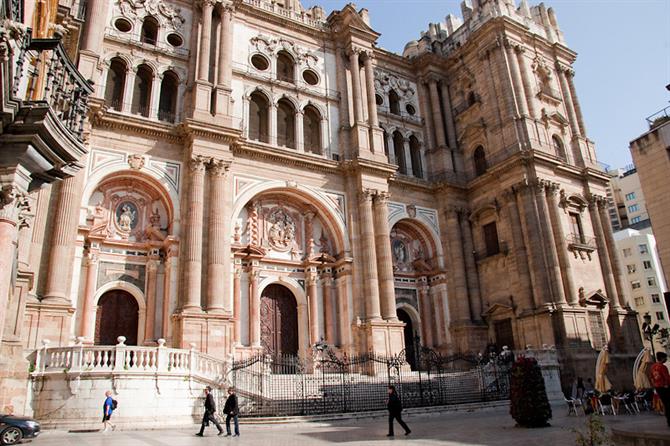
La Manquita, the cathedral of Malaga, and the Episcopal Palace both house exhibitions of Catholic art which you can visit combined with a guided tour of the respective buildings. The cathedral mainly displays art that was created to be displayed in the cathedral itself, and the Episcopal Palace offers a wide range of Catholic as well as African art. If you like visiting religious sites, you can also go to the Basilica de Santa María de la Victoria, which is not as well known by tourists as the cathedral. You can take a guided tour of the basilica and its artwork.
More information about the cathedral: spain.info/malagacathedral
More information about the Basilica de Santa María de la Victoria: santamariadelavictoria.com
Museums of the Semana Santa
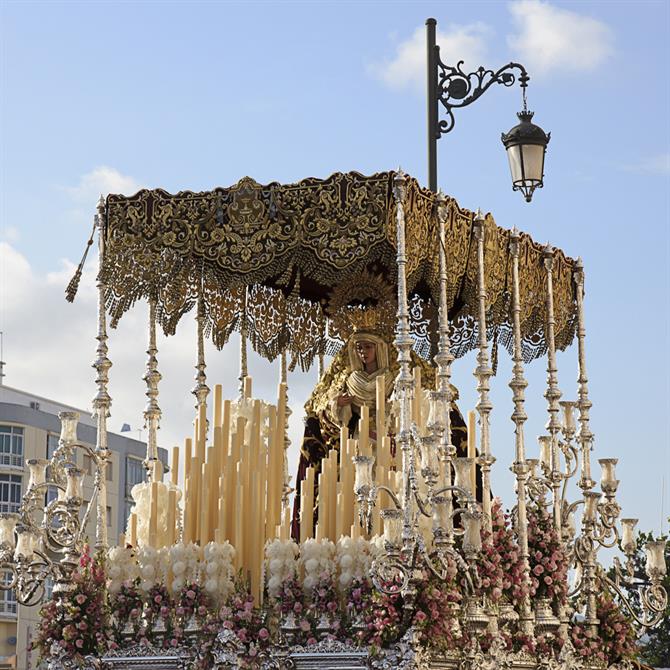
The Semana Santa (Holy Week or Easter Week) is one of the most important events in Malaga. You won't be in town for the celebrations, but you want to admire the floats anyway? The Brotherhood of the Expiration, the Brotherhood of Students, the Brotherhood of the Holy Sepulchre, the Brotherhood of the Captive and the Trinity and the Confraternity of Hope all have museums that you can visit. Most of them offer excellent guided tours.
Museo Revello de Toro
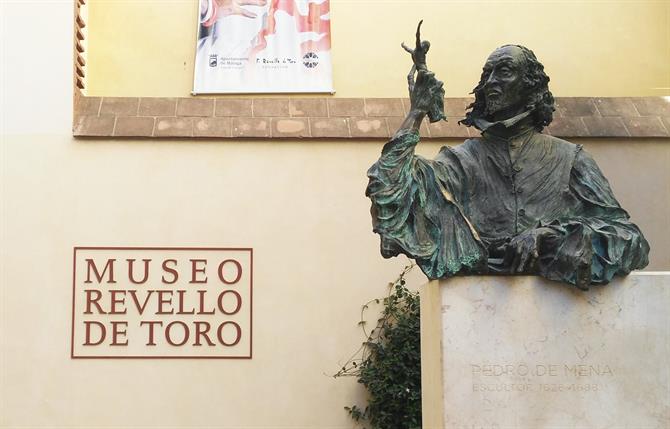
The Revello de Toro Museum centers around the works of painter Felix Revello de Toro. He is well known for his portraits of women and still-life paintings. The museum is housed in the former home and workshop of 17th-century sculptor Pedro de Mena, and to commemorate him there is also an interpretation centre of 17th-century religious art.
For more information: museorevellodetoro.net
Museo de Artes y Costumbres Populares
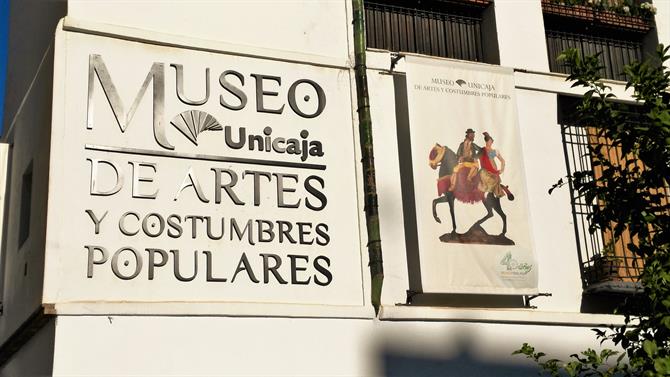
The Museum of Arts and Popular Traditions focuses on the daily life of malagueños throughout the ages. It covers every topic, from the lives of farmers and fishermen to wine makers and the higher classes.
For more information: museoartespopulares.com (website in Spanish)
The Alcazaba, Gibralfaro and the Roman Theatre
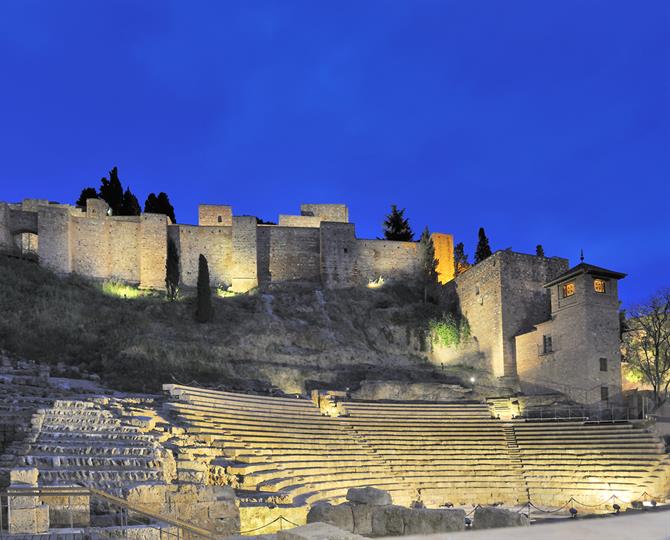
Although these three attractions are not technically museums, they do offer some interesting archaeological exhibitions and guided tours. In the Alcazaba you can enjoy an exhibition about archaeological finds and what they meant for the Moors who occupied Malaga at that time. A tour of the Roman Theatre will transport you to Roman times. And at the Gibralfaro you can learn how life was for the garrisons that were stationed there from the 16th to the 18th century.
More information about the Alcazaba: malaga.eu
More information about the Roman Theatre: spain.info/teatroromano
More information about the Gibralfaro: malaga.eu
Museo Taurino
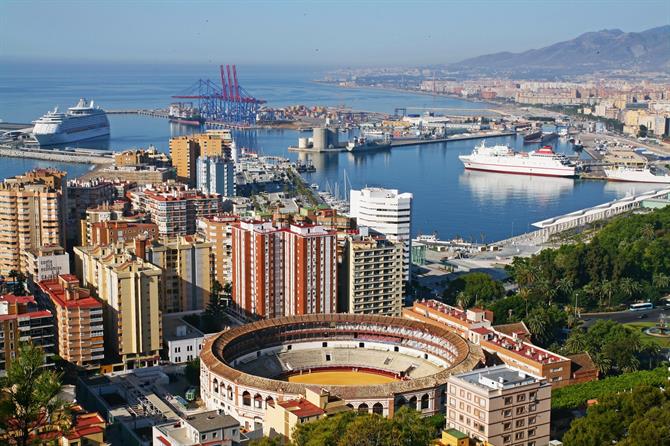
Whether you love it or hate it, no one can deny that bullfighting has been an integral part of Spanish culture until recently. The Plaza de Toros of Malaga houses the Bullfighting Museum, where the history of this custom, covering six centuries of bullfighting, is on display.
For more information: malaga.eu
As you have seen, there are plenty of excellent museums to be found. So next time you're staying in Malaga, take a break from the beach and visit a museum!
Did we forget to mention your favourite museum in Malaga? Tell us in the comments!
